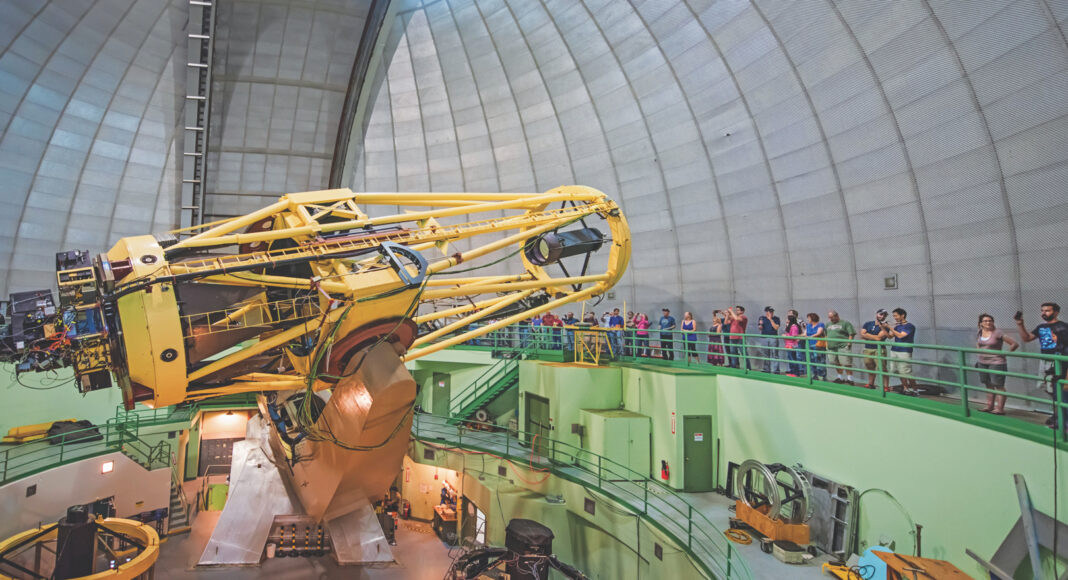The University of California Observatories (UCO), headquartered at UCSC, recently received $5.4 million from the Gordon and Betty Moore Foundation to support new education and outreach programs at Lick Observatory. The 130-year-old observatory sits atop Mount Hamilton, just east of San Jose.
The grant will establish the Scientific Teaching through Astronomy Research (STARs) programs. STARs will bring astronomers and equipment to K-12 schools around the Bay Area and create partnerships with nearby community colleges and California State University campuses.
“In almost every astronomer’s backstory, there’s this moment when you’re at a real telescope for the first time, and you see something that you’ve seen in a book, like the moons of Jupiter or the spiral arms of some other galaxy, and you realize it’s actually real. It’s not just stuff that lives in books; it’s things you can see and interact with yourself,” says UCO director Bruce Macintosh. “The goal [of STARs] is to bring that to as many people as possible.”
The new programs will collaborate with and build on existing astronomy education and outreach programs at UCSC, including La Noche de las Estrellas, a Spanish language program for families, and Lamat, a program for students at community colleges. The Institute for Scientist and Engineer Educators (ISEE) at UCSC will help train scientists and shape STARs. ISEE and UCO will hire two new employees to lead the programs.
But before new education programs take off, UCO faces the challenges of updating Lick Observatory’s 130-year-old facilities.
“It is not an easy drive up to Lick Observatory, and the dorms and kitchen are in need of restoration,” says Anne Metevier, an astronomer-educator with ISEE and lecturer at Sonoma State University and Santa Rosa Junior College. “This makes it challenging to bring groups of students up to the mountain for overnight observations or other education and outreach opportunities. STARs will improve the infrastructure for these programs.” The grant will help refurbish dormitories and create classroom spaces on Mount Hamilton.
Lick Observatory, though still powerful, is no longer the primary research site for UCO. Its proximity to San Jose makes light pollution a problem but also presents an opportunity for outreach.
“You could think of it as, ‘oh, my telescope has too much light pollution,’ or you could think of it as, ‘my telescope is a two-hour drive from three million people … many of whom might actually want to use the telescope,’” Macintosh says.
The motivation for the new STARs program is to broaden and diversify the “science pipeline” and to make scientific disciplines look more like the population in California, Macintosh says.
STARs will bring students from Cal State Sonoma, Cal State East Bay, San Jose State University and a few other community colleges to Lick Observatory as part of astronomy and physics classes.
“Many Bay Area students who are interested in learning about and doing astronomy live very close to Lick Observatory but until now have had little to no access to the research and education going on up on Mount Hamilton,” says Metevier. She adds that everyone at UCO is very excited about the new programs and that STARs will benefit Lick Observatory by increasing the kinds of studies done with the telescopes. The Moore Foundation grant covers four years of the new programs.
“I know that STARs will provide exciting, authentic and impactful astronomy opportunities for local college students and faculty, as well as K-12 learners,” Metevier says. “We are grateful to the Moore Foundation for their generosity.”














Hello Ann Metevier,
What a great project. Keep me in the loop. I hope Hartnell can be part of it.